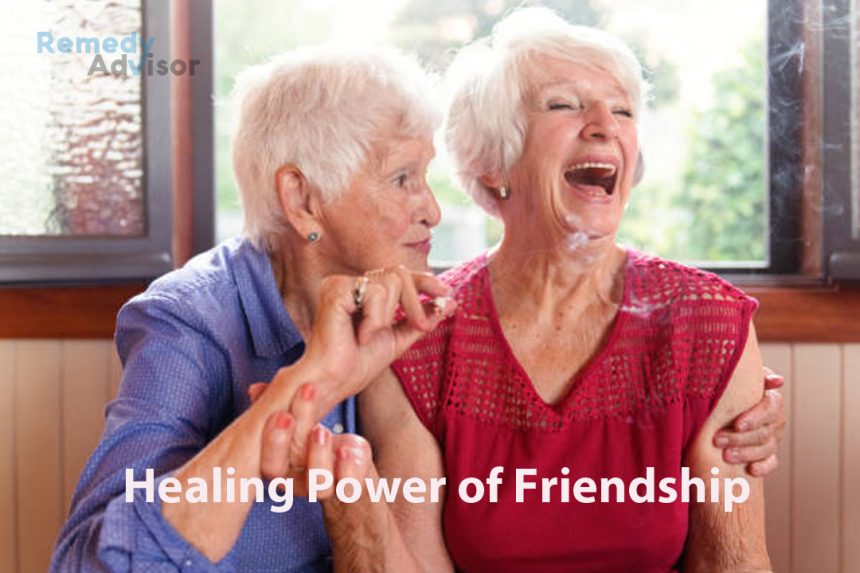America is in the midst of a loneliness epidemic and the isolation is undermining our health. Yet because our culture esteems self-reliance and abhors dependency, many of us are ashamed to admit we’re lonely and too proud to reach out.
In American society, saying you’re lonely suggests that you’re weak or unable to attract friends. Yet total self-reliance is a myth, and loneliness is not a sign of weakness. It’s an alarm system a signal that we need to bring people into our lives.
A hidden problem
Because of the stigma of admitting to loneliness, many people don’t even know they’re lonely much less what to do about it.
They may call the problem “low self-esteem” and look to the past for solutions. What they really need to do is get more involved with the people around them.
Of course, those who are too depressed to do so need to have their depression treated first. Our seeming obsession with the most intimate details of strangers’ lives as evidenced by the rise of “tell-all” television talk shows is another manifestation of our isolation.
When you lack a circle of people you know well, gossiping about strangers is a way to fill the gap. But it isn’t very satisfying.
Health risks of loneliness
Evidence is growing that loneliness has serious health consequences James House, PhD, a University of Michigan sociologist, reviewed studies of 37,000 people in the US, Sweden and Finland.
What he found: People who had no serious medical problems but who lived alone and/or had few friends were twice as likely to die over a decade as people who had more social connections.
- A Duke University study found that heart attack survivors who were married or had confidants had an 82% five-year survival rate. Those who had neither had a 50% five year survival rate.
- Ohio State University researchers have shown that having a close circle of friends helps block stress-related declines in immune function, as measured by natural-killer cell activity.
Increasing isolation
Harvard’s Robert Putnam has reported a serious decline in the number of Americans involved in church groups, political clubs, the Red Cross and similar community organizations.
A 1992 survey bolsters Putnam’s contention. It found that 39% of Americans said they socialized with neighbors no more than once a year compared with 28% in 1974. It doesn’t look as though this trend is going to change anytime soon.
Several college students have told me that having a significant relationship wills only hinder their careers. Their priorities are so skewed that they see such a relationship as a burden that will make it hard to reach their “real” goals.
Cultivating friendships
No matter how busy our lives, it’s essential that we make room for others. Even if you’re married, you need close friends other than your spouse. It’s unreasonable to expect one relationship to meet all your emotional needs.
Even if your spouse could meet all your needs, it’s risky to depend solely on him/her. What would happen to you if something happened to him?
Many people assume that a friendship forms naturally when we meet people we like and invite them to get together once in a while.
But liking someone and intending to get to know that person aren’t enough. To grow, friendships need a context a shared endeavor that provides regular contact.
Interest groups
Interest groups can provide this environment but only if they have a long-term focus. Helping out on a one-time political campaign doesn’t give you the same sense of connection that you would get from helping on the park cleanup crew every week.
If you’re shy about approaching new groups, consider inviting someone you already know to go with you to a meeting. In addition to a context, friendships need some degree of mutual dependency and mutual obligation.
Examples: Watering each other’s plants when one of you is out of town holding a joint garage sale looking after each other’s kids for the afternoon sharing a vegetable garden that joins two yards.
One obvious way to start this kind of exchange is to offer your help. Ask if you can bring some groceries by for a coworker who’s sick or collect mail for a neighbor who’s out of town.
Even better approach: Ask for a favor. For many of us, this goes against the grain. We worry that people will stop liking us if we impose. This is one of the first cultural values we acquire in America.
More often than not, though, people are delighted to be asked for their assistance. Because you were willing to go out on a limb by asking them for help, they’ll be more likely to turn to you when they need a hand.
Strengthening family tees
Asking for help is also a terrific way to strengthen bonds within families.
Example: My husband’s 98-year-old grandmother seemed depressed at family gatherings. She’s still an excellent seamstress, so on one of these occasions we asked if she’d mind trying her hand at a pile of mending that had stacked up. Suddenly, she felt happy and useful. She left the gathering more cheerful than we’d seen her in months.
Even if your family is spread out across the country, working on shared projects will bring you closer together.
Example I: Geographically dispersed siblings can help each other catalog old family photos or compile oral histories.
Example II: Families can take on charitable causes that hold particular meaning for them such as contributing to the American Liver Foundation if a relative needed a liver transplant.
Once we acknowledge our need for other people, we open the door to a life that is healthier, more connected and more satisfying.







